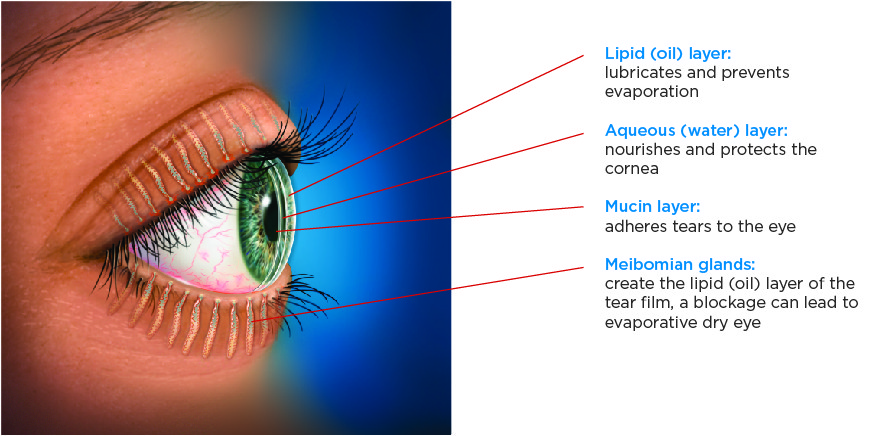LipiFlow Treatments
Dry Eye or MGD?
There are two forms of Dry Eye disease.
Are you treating the right one?
Dry Eye occurs when the eyes do not produce sufficient tears or the tears evaporate too quickly. Without proper treatment, inadequate tears can make daily activities frustrating, affecting your personal and professional life, from reading to watching TV, to driving or working on the computer.
The most common form of Dry Eye is Evaporative Dry Eye, which affects 9 out of 10 (86%) Dry Eye cases. This form results from a shortage of oil in your tears caused by a blockage in your eyelid (Meibomian) glands, leading tears to evaporate faster than normal. This lack of tear oil is often referred to as Meibomian Gland Dysfunction (MGD).
Now, with the breakthrough LipiFlow® technology, it’s possible to directly treat the root cause of MGD.
Tears are made up of three layers
If you’re like many people with Dry Eye symptoms, your condition is related to blocked meibomian glands and an inadequate protective layer of oils in your tears.
Common Symptoms of MGD
- Burning
- Dryness
- Sensitivity to light
- Blurred vision
- Discomfort in windy or dry conditions
Your Evaluation
A series of evaluations will be performed to determine if you have MGD. This can include a LipiView® tear film and gland imaging and a meibomian gland evaluation. Knowing what is causing your Dry Eye will help your doctor determine the best treatment option.
Relief with LipiFlow
LipiFlow is a procedure designed to treat the root cause of Evaporative Dry Eye, blocked Meibomian glands.


